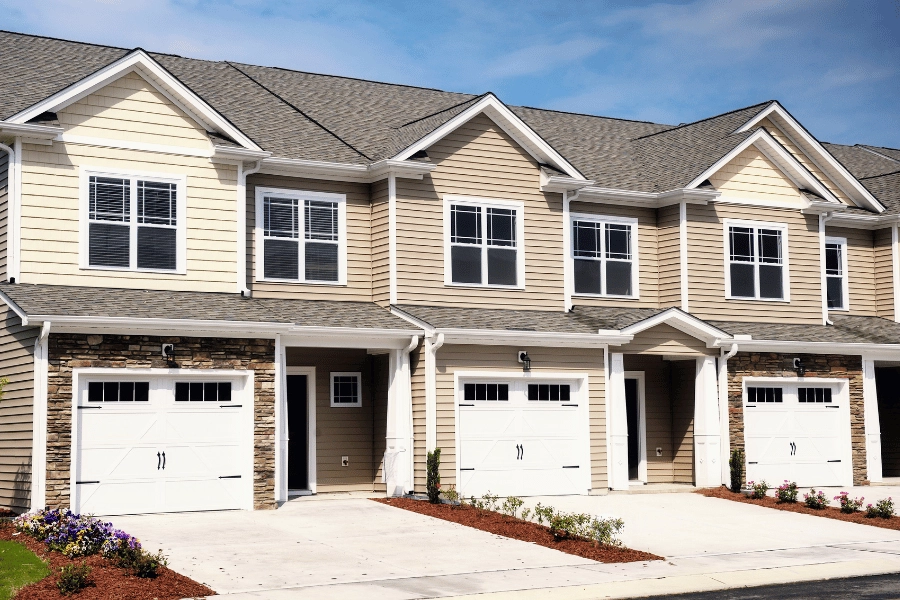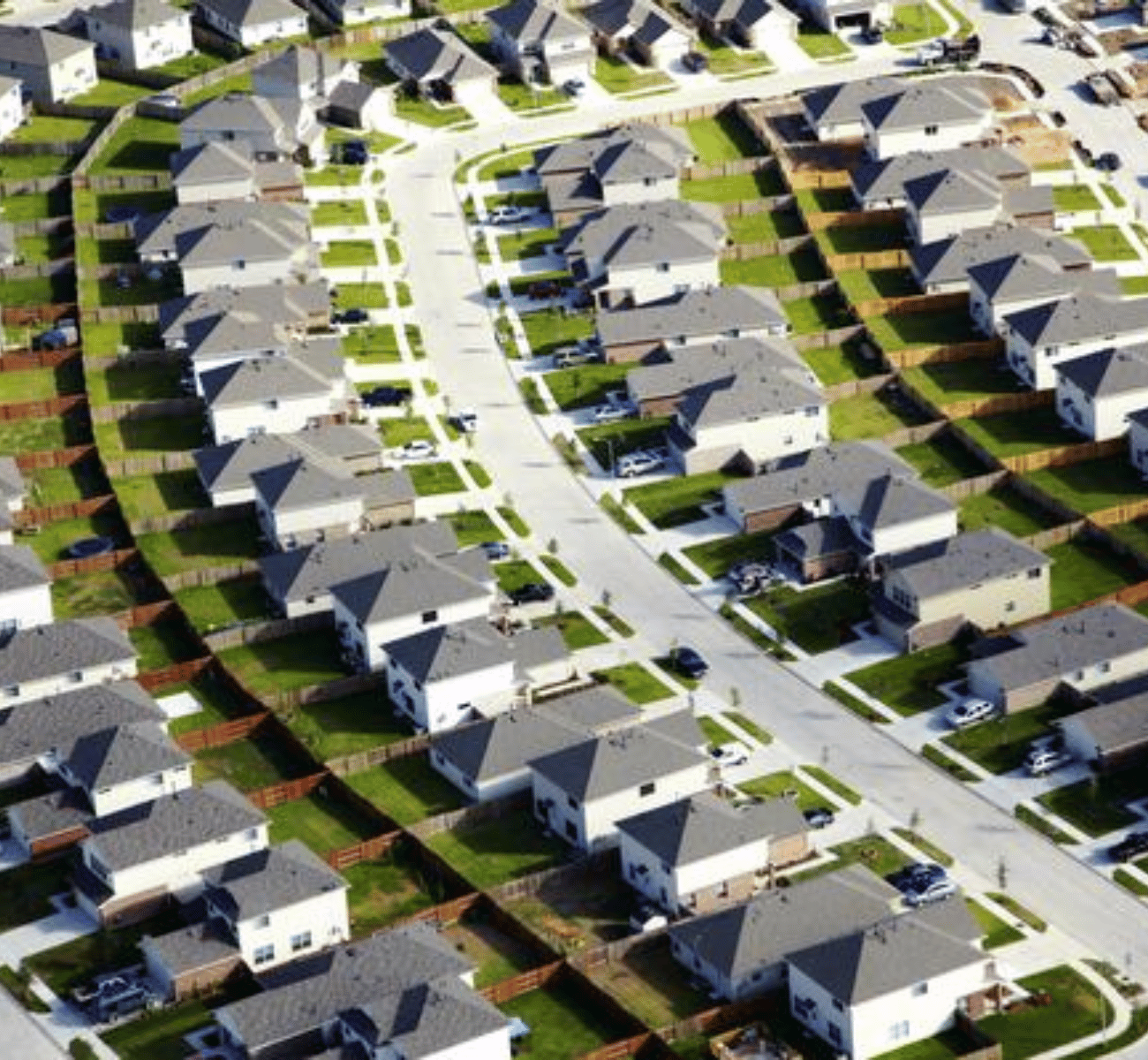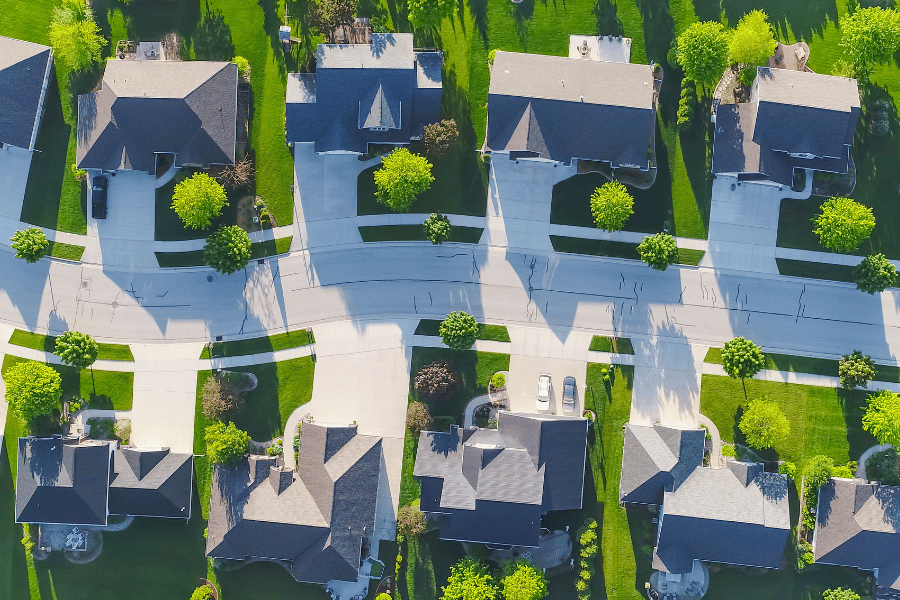Pros and Cons of a Homeowners Association
Will living in an HOA community be a good fit for you? Here are ten essential pros and cons of HOAs for homebuyers.
An HOA, also known as a Homeowners Association, is an organization that sets and enforces rules and standards for a neighborhood or condo. HOAs offer many benefits, including amenities, maintenance, and security. However, they also come with their fair share of disadvantages.
When house hunting in the Raleigh area, you'll likely encounter many beautiful neighborhoods governed by Homeowners Associations (HOAs). From the master-planned communities in Cary to the established neighborhoods in North Raleigh, HOAs are a common feature of Triangle-area living. But is an HOA-managed community right for you?
Here are the pros and cons of a Homeowners Association (HOA).
1. Pro: Access to Premium Amenities
One of the most compelling reasons people choose HOA communities is the access to amenities that would be too costly to maintain individually. Many Raleigh area HOA neighborhoods feature resort-style pools, tennis courts, fitness centers, walking trails, and clubhouses perfect for entertaining.
Some communities even offer golf courses, boat launches, or specialty facilities like dog parks and playgrounds. These amenities can significantly enhance your quality of life while providing convenient recreation options right in your backyard.
These amenities are considered semi-private in that community members have access but do not have to worry about their upkeep. These amenities help create a sense of community throughout the neighborhood and offer social gatherings throughout the years.
The plus side to these amenities that HOAs is that some people may not be able to afford on their own, so this makes it more accessible and affordable in such a close proximity to the comfort of your own home.
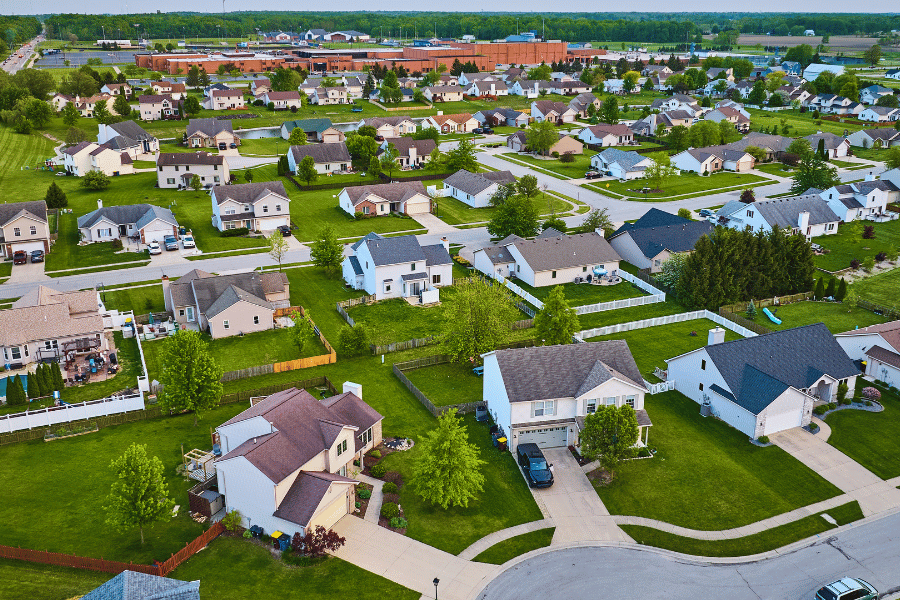
2. Pro: Reduced Home Maintenance Responsibilities
The HOA is in charge of overseeing the community, so they handle the landscaping duties as well as maintenance for common areas and amenities. This helps improve curb appeal and increase home values throughout the neighborhood, which can help the selling process.
HOA living can be a game-changer for busy professionals, frequent travelers, or those who simply prefer to spend weekends relaxing rather than doing yard work. Many associations handle exterior maintenance tasks like landscaping, snow removal, exterior painting, roof repairs, and even pest control.
This is particularly valuable in North Carolina's climate, where seasonal maintenance demands can be substantial. You'll have more time for the things you enjoy while ensuring your property stays well-maintained.
Having members in charge of the community helps in many ways. Some HOAs include trash collection, pest control, and many other things that can save you time and money and enhance your quality of life.
The fees that you pay sometimes seem like a lot, but if you think about it, these fees go towards many services like maintenance, trash removal, snow removal, and other things that you will not have to do on your own.
3. Pro: Neighborhood Aesthetic Standards
HOAs enforce community standards that help maintain the visual appeal and character of your neighborhood. This includes guidelines on home colors, landscaping requirements, fence styles, and restrictions on items like boats, RVs, or commercial vehicles in driveways.
While some may view these as restrictive, they ensure that your neighborhood maintains its intended look and feel, creating a cohesive, attractive environment that residents can take pride in.
The rules HOAs put in place prevent property neglect and maintain the property values for the houses and the community overall. HOA neighborhoods typically look more maintained and newer, even if they are older communities compared to ones without HOAs.
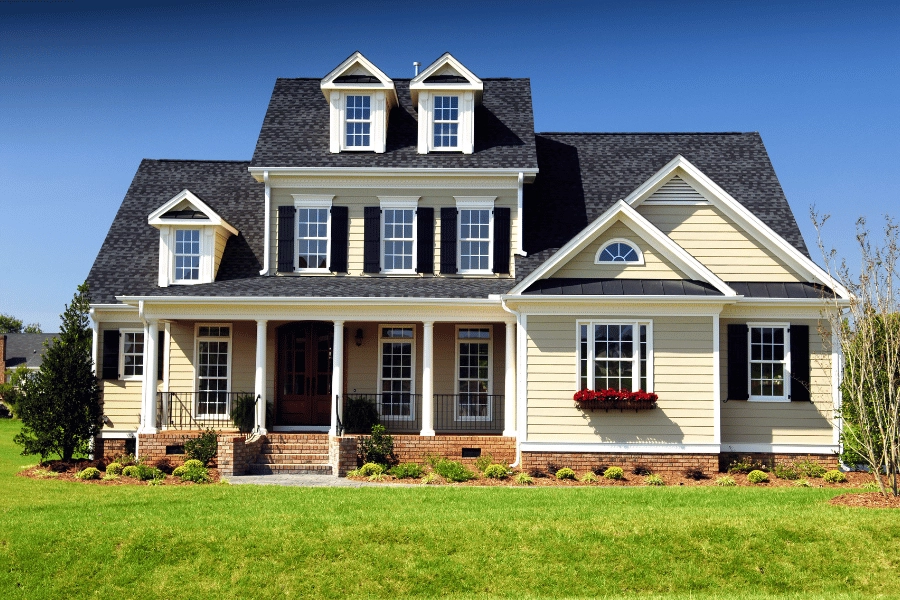
4. Pro: Protected Property Values
Studies consistently show that well-managed HOA communities often maintain higher property values compared to similar non-HOA neighborhoods. The combination of maintained amenities, enforced standards, and professional management creates stability that appeals to future buyers.
HOAs sell, on average, 5% to 6% more than other homes that do not offer HOAs. The selling price of homes is higher for larger houses and homes in small neighborhoods. Since the HOA keeps up with the community and upkeep, homes tend to stay in better condition than others.
In competitive markets like Raleigh, this can mean better resale potential and faster sales when it's time to move. The predictable environment also provides protection against problematic neighboring properties that could negatively impact your home's value.
Buying a house is a considerable investment, and everyone wants their investment to increase in value over time, not decrease. Purchasing a home that is part of a homeowners association can be a great choice if you are looking to improve your property values and be a good use of your hard-earned moeny.
5. Pro: Professional Management and Emergency Services
Established HOAs typically employ professional management companies that handle day-to-day operations, vendor relationships, and emergency situations. This means you have a dedicated point of contact for community issues and often access to preferred pricing on services like landscaping or repairs.
Many HOAs also coordinate emergency services during severe weather events, maintain emergency contact systems, and may even provide security services or gated access for additional peace of mind.
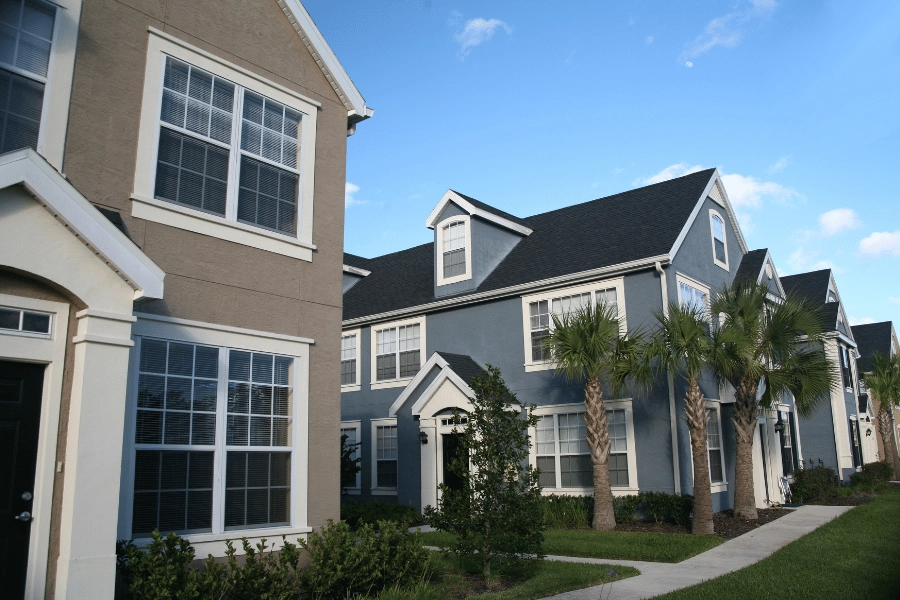
6. Con: Monthly Fees and Special Assessments
While HOAs have many pros, the one primary reason people do not like them is the fees, mainly because they are mandatory. The HOA fee is the amount of money collected by an HOA organization from the owners to maintain the community. You are required to pay dues when you buy a home in a homeowner's association.
These fees, however, do go to the community to help of maintaining it as well as all the amenities and services that they offer the residents. HOA fees in the Raleigh area typically range from $200 to $300 per month, depending on the amenities and services provided.
These fees are in addition to your mortgage, taxes, and insurance, effectively increasing your monthly housing costs. Additionally, HOAs may levy special assessments for major repairs or improvements, such as pool renovations, road resurfacing, or roof replacements on common buildings.
These assessments can range from hundreds to thousands of dollars and are typically mandatory, regardless of whether you personally use the amenities being improved.
7. Restrictive Covenants and Rules
Each HOA will have its own covenants and rule restrictions in place. These rules tend to be in place to help regulate the community and boost the curb appeal of the homes.
Common restrictions include limitations on home business operations, restrictions on rental properties, specific requirements for landscaping or home modifications, and rules about pet ownership (breed restrictions, size limits, or quantity limits).
Some associations also regulate parking, holiday decorations, exterior lighting, and even the types of plants you can grow. These rules, while intended to maintain community standards, can feel overly restrictive to homeowners who value personal freedom.
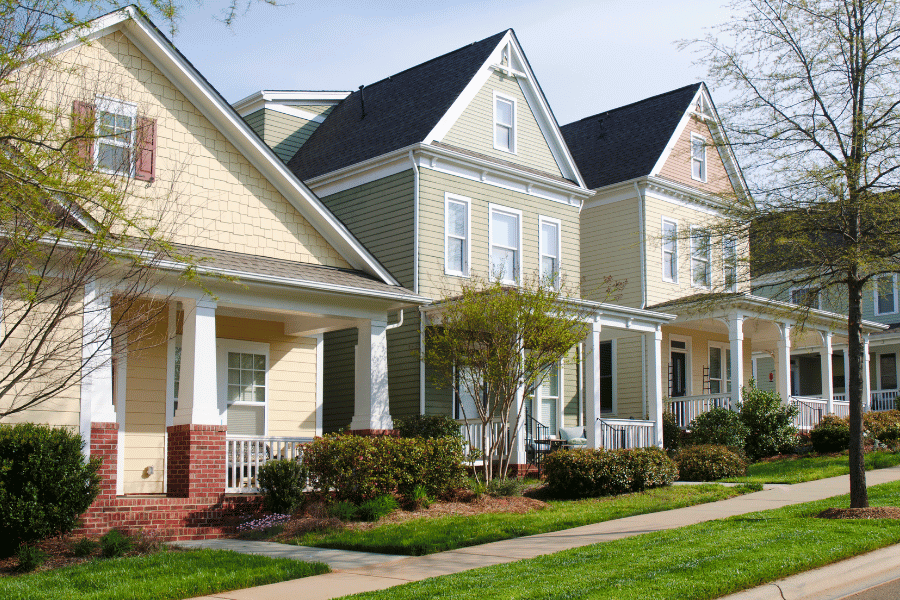
Many people do not like to be told how they decorate or what to do with their own homes, so this is one of the main reasons why people do not want to live in HOA communities. Below are some common violations that many HOAs follow.
- Exterior home paint color
- Garbage in view of the public
- Unkempt conditions like peeled paint or mildew
- Unapproved shutters
- Hose, toys, and miscellaneous objects left in the driveway
An HOA can also stop you from renting out your own home, which many people do not like. Every HOA is different so make sure you know the community master plan.
8. Risk of Poor Management
Not all HOAs are well-run. Poor management can lead to a host of problems including deferred maintenance of common areas, mismanagement of funds, inconsistent rule enforcement, or lack of responsiveness to homeowner concerns.
HOAs are made up of volunteers in the community, which means that these people are humans and not so much professionals. A bad one can mismanage the community, which is one of the main reasons HOAs tend to face lawsuits because of the failure to maintain the community.
Some associations struggle with volunteer board members who lack experience in property management, financial planning, or conflict resolution. This can result in declining property values, deteriorating amenities, and frustrating living conditions that are difficult to resolve without extensive community involvement.

9. Potential for Liens and Foreclosure
HOAs have significant legal powers to collect unpaid fees and fines. If you fall behind on HOA dues or accumulate fines for rule violations, the association can place a lien on your property.
In North Carolina, HOAs can potentially foreclose on homes for unpaid assessments, even if your mortgage is current. While foreclosure for HOA debts is less common than mortgage foreclosure, it represents a real risk that doesn't exist in non-HOA properties.
In North Carolina, an HOA is permitted to include charges for the following in its lien unless provided otherwise:
- Past due assessments
- Late charges (not to exceed greater than $20 a month)
- Fines for violations
- Interest on past-due common assessments
- Other charges connected to any of the documents or unpaid assessments
10. Limited Personal Autonomy and Potential Conflicts
Living in an HOA means accepting that community standards may override personal preferences. You may need approval for exterior changes like installing solar panels, changing paint colors, or adding a deck. Some homeowners find the approval process slow and bureaucratic.
Additionally, HOA communities can sometimes foster neighbor disputes over rule interpretation, enforcement inconsistencies, or philosophical differences about community direction. Board politics and personality conflicts can create an uncomfortable living environment that's difficult to escape without moving.
Methodology
To determine the pros and cons of an HOA, data was sourced from the National Association of Realtors.
FAQs
What are some advantages and disadvantages of an HOA?
HOA communities offer many benefits, such as the amenities, security, maintenance, and many other things. Still, on the other hand, there are some cons as well, such as fees, conflicts, bureaucracy, and restrictions.
What is the point of living in a HOA?
One of the main reasons people prefer to live in homes in an HOA is because it stabilizes home values, keeps common areas maintained, and there are strict home appearance rules that keep the neighborhood well-kept.
Why do people tolerate HOAs?
One of the reasons people tolerate HOA is due to the consistency of the property values because they ensure your investment maintains the value through laws, rules, and maintenance.
Why do people join HOAs?
Many people prefer to join the board members of the HOA because they have better control over the community rules and maintenance instead of having someone else do it.
Pros and Cons of HOA - The Bottom Line
The decision to live in an HOA community ultimately depends on your personal priorities, lifestyle, and financial situation. If you value amenities, prefer minimal maintenance responsibilities, and appreciate well-maintained neighborhoods, an HOA community might be perfect for you.
However, if you prioritize personal autonomy, want to minimize monthly expenses, or prefer handling your own property maintenance, a non-HOA neighborhood might be a better fit.
HOAs can make your life as a homeowner less stressful and provide many amenities that you may not be able to do on your own. However, everyone has their own lifestyle, so making sure you know what an HOA is and what specific ones do is essential when choosing a neighborhood to live in.
Are you moving to Raleigh and ready to explore your options? Contact the experts at Raleigh Realty today to discuss your home search and help us find you the perfect community for your next chapter.


